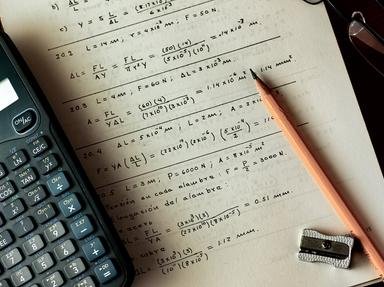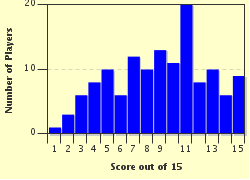Quiz Answer Key and Fun Facts
1. A reflex angle is any angle of what size?
2. Lines AB and CD intersect at point E. Therefore, angles AED and CEB are said to be vertically opposite. What does this mean?
3. If two angles are said to be alternate, then what shape is formed between two parallel lines and the line that cuts through them?
4. If two angles between a pair of parallel sides are cointerior, then they are said to be what?
5. If a triangle is scalene, then which statement is true?
6. The SAS test for congruent triangles states what about it sides and angles?
7. What is the length of the hypotenuse of a right-angled triangle if its other sides are 4cm and 7cm?
8. In any quadrilateral, the sum of the interior angles is equal to what?
9. Which quadrilateral does the property "one pair of sides parallel" belong to?
10. What is the name of a regular polygon with nine sides?
11. How many sides does a regular polygon have when its interior angles are equal to 140?
12. Which two shapes have the same formula for area?
13. What is the area of a trapezium with height 4cm, and parallel sides 5cm and 7cm long?
14. What is the formula for the volume of a cylinder?
15. What is the volume of a rectangular prism with side lengths 6cm, 8cm and 10cm?
Source: Author
dialga483
This quiz was reviewed by FunTrivia editor
rossian before going online.
Any errors found in FunTrivia content are routinely corrected through our feedback system.

